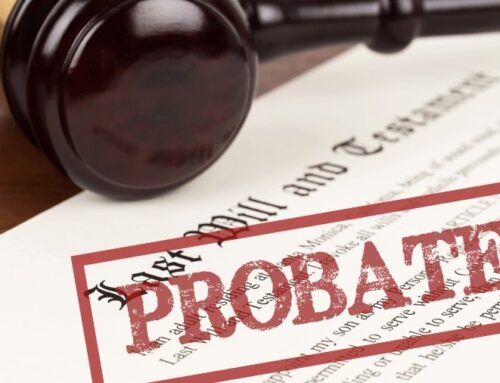Inheriting property can be both a blessing and a burden. While it may represent a valuable asset, the process of selling inherited property often involves navigating the complexities of probate sales. This guide will provide an overview of what you need to know when selling inherited property, including the steps involved, potential challenges, and tips for a smooth sale. Learn How to value a home in probate.
Understanding Probate Sales
What is Probate?
Probate is the legal process that occurs after someone passes away. It involves validating the deceased’s will (if one exists), appointing an executor or personal representative, and administering the estate. This includes paying debts and taxes, as well as distributing assets to the beneficiaries. If the deceased owned real estate, the property typically goes through probate before it can be sold.
When is a Probate Sale Necessary?
A probate sale is often necessary when the inherited property must be sold to settle debts, distribute assets among heirs, or when the heirs do not wish to retain the property. In some cases, the deceased may have designated specific beneficiaries to inherit the property, but it may still need to go through the probate process.
Steps for Selling Inherited Property
1. Understand State Laws
Each state has its own probate laws, which can significantly impact the sale of inherited property. Familiarize yourself with the local regulations, including requirements for court approval, disclosure obligations, and the process for valuing the property. Consulting with a probate attorney can be invaluable in understanding these laws.
2. Appoint an Executor
If you are the executor named in the will, your first step is to file the will with the probate court and obtain “letters testamentary,” which grant you the authority to act on behalf of the estate. If there is no will, the court will appoint an administrator to manage the estate.
3. Obtain an Appraisal
To determine the fair market value of the property, it’s essential to get an independent appraisal. This not only helps in setting an appropriate asking price but is often required by the court to ensure that the property is sold for a fair price.
4. Clear Out the Property
Before listing the property for sale, it may be necessary to clear out personal belongings left behind by the deceased. This can include sorting through items to determine what to keep, donate, or discard. Clearing out the property can also help you assess any repairs or renovations needed to make it market-ready.
5. Make Necessary Repairs and Improvements
After clearing the property, consider making necessary repairs to enhance its marketability. Addressing minor issues, such as fixing leaky faucets or repainting walls, can increase the property’s appeal and potentially its value.
6. Hire a Real Estate Agent with Probate Experience
Choosing the right real estate agent is crucial for a successful sale. Look for an agent with experience in probate sales, as they will understand the unique challenges and requirements involved. They can help with marketing, pricing, and navigating the sale process efficiently.
7. List the Property
Once the property is ready, your agent will help you list it for sale. Ensure that high-quality photos are taken, and consider staging the property to make it more appealing to potential buyers. Marketing strategies may include online listings, social media promotion, and open houses.
8. Obtain Court Approval (if necessary)
In many jurisdictions, selling inherited property requires court approval, especially if the property is being sold for less than its appraised value. Your attorney and agent can help you prepare the necessary documentation to present to the court.
9. Negotiate Offers and Close the Sale
Once offers come in, negotiate terms and select the best offer. After accepting an offer, follow through with the closing process, which includes preparing necessary documents, coordinating with the buyer’s agent, and addressing any legal requirements.
Conclusion
Selling inherited property through probate can be a complex but manageable process. By understanding the necessary steps and seeking the right professional guidance, you can navigate the sale effectively and ensure that the estate is settled appropriately. While the journey may come with challenges, it can also lead to a resolution that honors the deceased’s wishes and supports the needs of the beneficiaries.
FAQs
Q: Do all inherited properties go through probate?
A: Not all inherited properties must go through probate. If the property was held in a trust or if it qualifies for certain exemptions (like joint tenancy), it may bypass the probate process.
Q: How long does the probate process take?
A: The length of the probate process can vary significantly depending on the state and complexity of the estate. It can take anywhere from a few months to over a year.
Q: Can I sell the property before probate is completed?
A: Generally, you cannot sell the inherited property until the probate process is complete, unless you have obtained court permission to do so.
Q: What happens if there are multiple heirs?
A: If there are multiple heirs, they must agree on the sale. Clear communication is essential to avoid conflicts and ensure everyone’s interests are considered.
Q: Are there any taxes involved in selling inherited property?
A: There may be tax implications when selling inherited property, such as capital gains tax. However, inherited property typically receives a “step-up” in basis, which can reduce tax liability. Consulting a tax professional can provide clarity on potential taxes.
Selling inherited property can be a challenging yet rewarding process. By following the right steps and enlisting the help of professionals, you can navigate the complexities of probate sales and ensure a successful outcome.
Learn More About Our Values: “Understand our values and commitment to excellence.”











